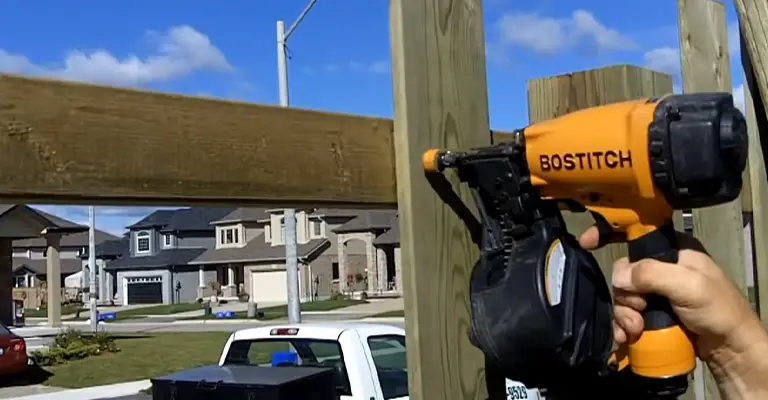What If I Build A Fence Without Permit?
The construction of fences requires a permit, but what if you don’t have one? What if I decide to build a fence without a permit?
This is an important question that any homeowner might ask themselves. In this article, we will discuss the consequences of building a fence without a permit and what you can do in order to avoid these consequences.
If you are planning to build a fence without getting the necessary permits, there are some things that you should know before you start building. Firstly, it is illegal to build fences on certain property lines.
Secondly, your neighbors can file complaints against your fence, and if they do, the city will have no choice but to tear down your fence or fine you for building it in the first place.
Lastly, if your house gets damaged during construction or by an animal going through it, you will be responsible for repairing the damage caused by your own. So, honestly, it’s better to get a permit first.
The Laws Regarding Fence Building
Laws regulating fence building have been important for many years in order to maintain peace. Different laws apply to different states, cities, and counties. You can expect the following fence laws in most places.
Start by contacting the planning and permitting department of your city or county to determine if these laws apply to you. Laws, regulations, and zoning regarding fences may vary from area to area, but there are a few common themes: notification, expenditures, position and placement, and fence height and type.
Get A Building Permit
The fence is a prominent feature that affects the visual appeal of a property and a neighborhood. There is a good chance you will get caught if you construct a fence without a permit.
Some cities impose zoning laws that regulate fence height, materials, and style, especially if you live in a historic district. If you want to build a fence taller than the allowed height or use materials not approved by the city, you will need to get approval from the city first.
Zoning laws are intended to protect historic districts from overdevelopment. In most cities, a set of regulations must be followed when building a fence in the historic district. These regulations are meant to preserve the integrity and character of the area by regulating fence height, materials, and style.
Building and planning offices in your area can assist with fence permits. When your permit is issued, you should receive a copy of all the rules and regulations regarding fence installation in your area.
Is It Possible To Build A Fence Around My Garden Without A Permit?
You may not be thinking about the laws concerning fences when you decide to put up a fence around your garden. However, if a fence is going to be constructed or erected on a person’s property, some laws need to be considered.
There are many people who think that a fence can be no higher than two meters. Inaccurate websites spread the myth. As per the law, fences can reach a height of 100 meters.
However, it can only be done if proper planning permission has been obtained. Fences shorter than 2 meters do not need a permit. Despite its simplicity, the law has some complexities.
It is necessary to apply for planning permission in order to construct a trellis on a 2-meter fence. On the other hand, if a plant you grow on that trellis exceeds 2 meters in height, you will not need a permit to grow.
What Happens If I Build A Fence Without A Permit?
A fine can be imposed if you fail to get a permit when building a fence if you live in an area that requires one. Building a fence does not require a permit in all neighborhoods, states, or counties.
You may receive a stop-work order from your neighborhood or county and be fined $100 per day for continuing to build the fence. The type of fence you build and whether you live in an area with a homeowner’s association will determine whether or not you need a permit for your fence installation.
In this post, we’ll outline these specific elements in hopes of shedding some light on the subject and examining the repercussions of building without a permit.
- If You Make A Difference With The Fence
If your fence is located, made of particular materials, or heightened, it may be required to follow any number of regulations.
Your neighborhood may have a homeowner’s association that provides protection for property values and maintains uniformity with the adoption of certain standards.
The majority of municipalities also have zoning laws that regulate allowed fence heights, materials, and even the design of fences if they’re part of a historic district.
Depending on your HOA and the zoning laws in your area, you may be allowed to build certain types of fences. Generally, if you live in a residential neighborhood, you won’t be allowed to install a barbed-wire fence.
- The Place You Live Matters
As previously stated, a fence installed in a major metropolitan city like New York or Los Angeles will likely prove to be more challenging than one installed in a rural location.
Your fence project will need to comply with zoning laws and ordinances, as well as neighborhood design requirements if it is located in a densely populated area. Nevertheless, a farmer in an area where there is no municipal infrastructure may be able to install a fence on his property without a permit.
To ensure you’re following all the proper steps and obtaining a permit, you should always consult the building inspector’s office in your city, regardless of your situation.
What Is The Closest Distance The Fence Can Be Built To The Property Line?
Fences can often be built directly on property lines that are shared with others if they agree to them. However, it may be difficult for you to build directly on a property line that is shared with a public entity. Your fence may need to be moved back.
Fences That Do Not Comply With The Code
Neighbors and passersby often notice fences. The local planning and permitting department receives anonymous complaints about fences daily. Fences are not usually noticed or addressed by cities unless a complaint is received.
If your fence violates city regulations, you will typically be issued a written notice from the city requiring it to be lowered or set back. There is usually a set amount of time to do so. In practice, the time allotment is usually short: within 30 or 60 days rather than over months or years.
The Consequences Of Building A Fence Without Permits
You should secure a permit regardless of whether you’re concerned about the possible consequences of building a fence without one. We’ll examine what could happen if you’re caught building a fence without one.
- Fines May Be Imposed
Any time an inspector catches work being done without a permit, your home could be tagged for a fine. It’s not unusual for neighbors to file a complaint with the permit office and receive a fine. You may also incur an additional fine of up to $100 a day if the fine is overlooked and remains unpaid for an extended period of time.
- You May Not Find A Buyer For Your Home
In the event that the integrity of non-permitted work is questioned, it may lead potential buyers to decline to purchase your property. It’s impossible for a home buyer to know if a project has been done correctly or if it adheres to code without a permit.
- Problems With Appraisals When Selling A Home
Similarly, the presence of non-permitted work affects the value of your home when it is being sold or refinanced. The appraiser could lower the value of your home if the work has not been inspected properly.
- Problems With Refinancing
An appraisal will be required when you refinance your home. A tax assessor archives any changes made to a home by an inspector that comply with building codes. In the event that non-permitted work is completed, you might be unable to refinance your home if your appraiser cannot figure out the value.
Is It Necessary To Notify My Neighbors I’m Building A Fence?
There is no requirement that you notify your neighbors when you are building a fence, even though common courtesy dictates that you should. You can decide not to tell your neighbors as long as they are within your designated property line and the fence complies with neighborhood regulations. Nonetheless, if they want to dispute the installation of your new fence, alerting them ahead of time can help avoid any future legal trouble.
What If The Work Is Already Done And You Want To Obtain A Permit?
The law is specific about the steps you need to take before building a fence. However, there are some exceptions when you can get a permit for building a fence without taking legal steps.
If the work is already complete, it may be possible to obtain a permit. Permits of this type are known as retrospective permits. Inspection will be required, and you may have to make modifications depending on the work completed.
However, if there are any changes made to your project after the completion of the work, you may need to start from scratch and apply for a new permit.
Final Words
Building fences without permits is illegal in many countries. In most cases, it is illegal and very difficult to build a fence without getting caught. To avoid penalties and fines, it is important to follow certain guidelines and obtain permits first when building fences.
If you need some lighting in your fence, you can check out these best fence post solar lights.





